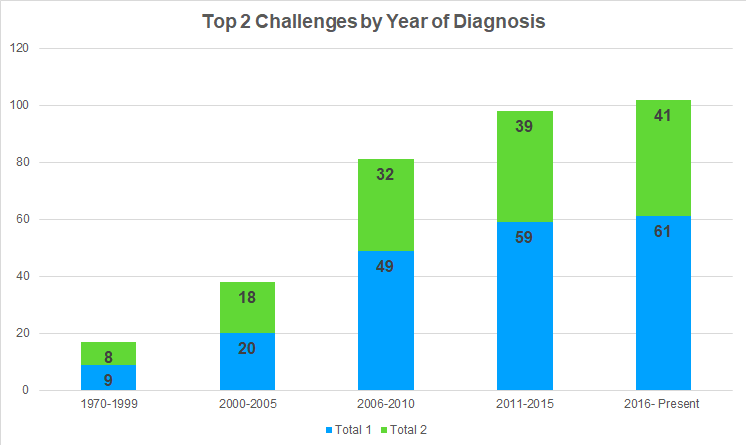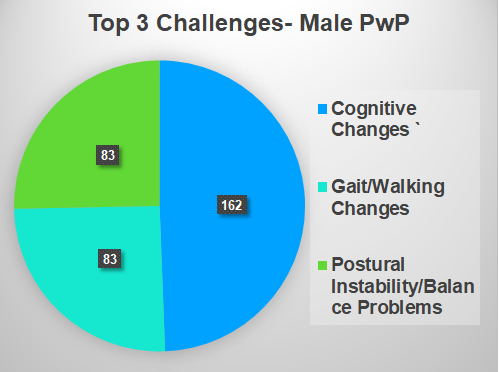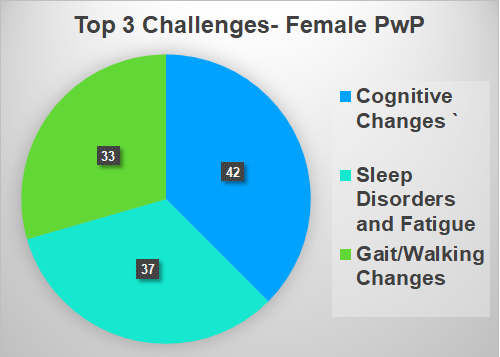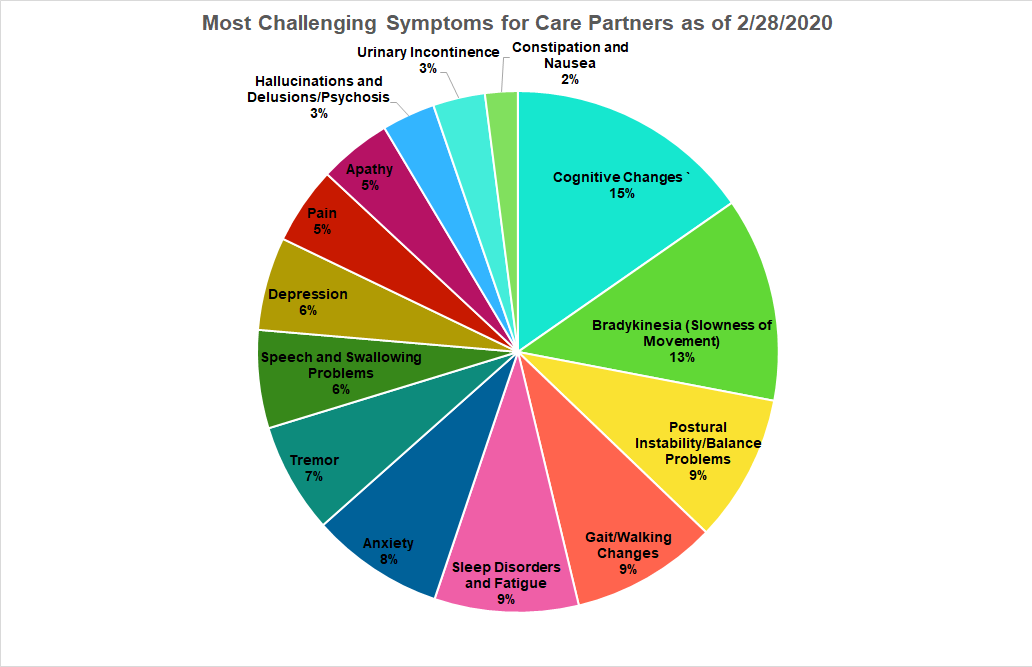Objective: Our objective is to understand the impact that specific symptoms have on the care partners of people with Parkinson’s, considering gender (of both the person with Parkinson’s and the care partner), year of diagnosis, role of the care partner, and age of the care partner.
Background: This data is being collected through registration for the 2020 Care Partner Summit | Cumbre Para Cuidadores (CPS), a free bilingual event hosted by the Parkinson’s Foundation that includes both in-person and online viewing opportunities in English and Spanish. At the end of February, we have 590 care partners registered, which includes 439 spouses/partners, 91 children, 33 other family and 27 friends of people with Parkinson’s. Registration will remain open through the event on May 16, 2020. We expect to analyze data collected from at least 1,000 care partners for this poster.
Method: Through registration for the CPS, the following question is asked: Which of your loved one’s Parkinson’s symptoms are the most challenging for you as a care partner? Respondents are able to select up to three of the following options: (1) Anxiety, (2) Apathy, (3) Bradykinesia (Slowness of Movement), (4) Cognitive Changes, (5) Constipation and Nausea, (6) Depression, (7) Gait/Walking Changes, (8) Hallucinations and Delusions/Psychosis, (9) Pain, (10) Postural Instability/Balance Problems, (11) Sleep Disorders and Fatigue, (12) Speech and Swallowing Problems, (13) Tremor, (14) Urinary Incontinence.
Results: We will analyze additional data as it comes in, but currently, the most challenging symptoms for care partners are (1) Cognitive Changes, (2) Bradykinesia (Slowness of Movement) and (3) Postural Instability/Balance Problems. If we look only at non-motor symptoms, the most challenging symptoms for care partners are (1) Cognitive Changes, (2) Sleep Disorders and (3) Fatigue, and Anxiety.
Conclusion: Preliminary findings suggest that Sleep Disorders and Fatigue are more challenging for care partners of female PWP than male, with Cognitive Changes and Gait/Walking Changes as shared primary challenges for both groups. Cognitive Changes seem to be a significant challenge for care partners regardless of length of disease, with 20% of responses of spouses/partners placing Cognitive Changes as one of the three most challenging symptoms.
To cite this abstract in AMA style:
A. Wallis, D. Perret. The Care Partner Perspective: Most Challenging Parkinson’s Symptoms [abstract]. Mov Disord. 2020; 35 (suppl 1). https://www.mdsabstracts.org/abstract/the-care-partner-perspective-most-challenging-parkinsons-symptoms/. Accessed July 18, 2025.« Back to MDS Virtual Congress 2020
MDS Abstracts - https://www.mdsabstracts.org/abstract/the-care-partner-perspective-most-challenging-parkinsons-symptoms/




